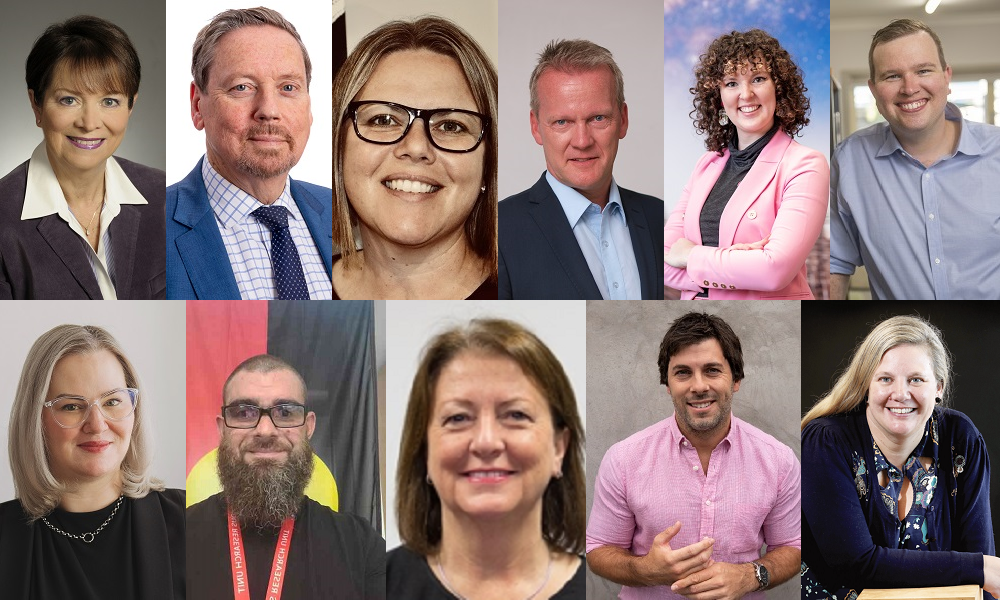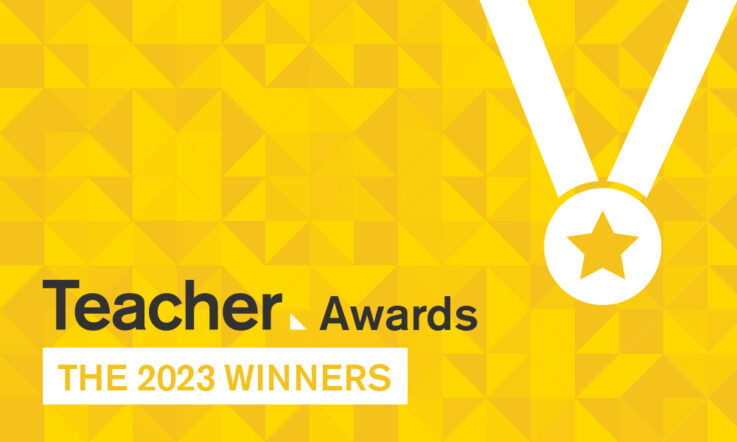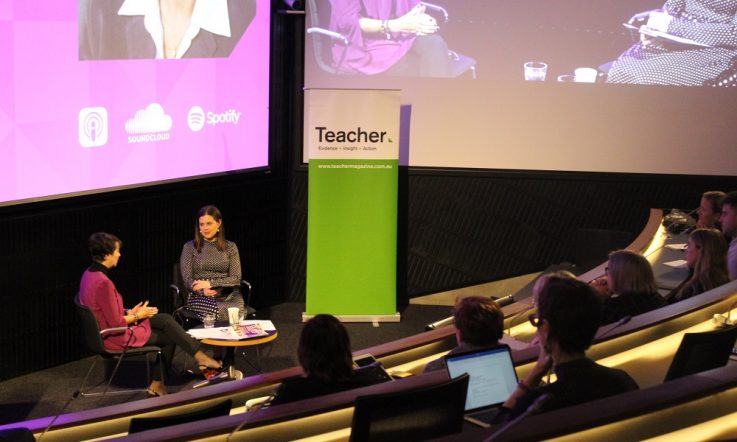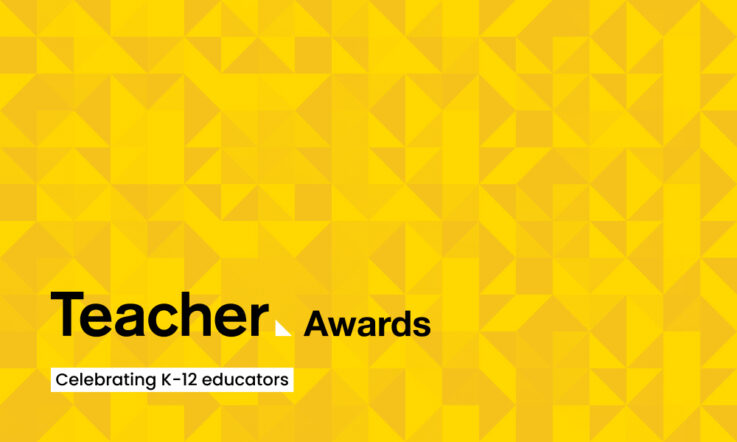After overwhelming success in its inaugural year last year, we’re excited to share that the Teacher Awards are returning for 2024.
Nominations for the awards will open at 9.00am (AEST) 3 June and are open until 11.59pm (AEST) 29 July 2024. Click here to learn more about eligibility and the application process, or here to read more about the 8 Award categories.
The Judging Panel is comprised of 11 experts in education. The Judging Panel is the second tier of the Awards evaluation process. Preceded by a selection committee which selects a shortlist of candidates, the Judging Panel reviews the shortlist and goes on to select the winner in each category.
Let’s meet the judges on the panel.
Professor Geoff Masters
Australian Council for Educational Research
Professor Geoff Masters is CEO and a member of the Board of the Australian Council for Educational Research (ACER). He has conducted a number of reviews for governments, including reviews of strategies for improving literacy and numeracy learning in government schools in Queensland and the Northern Territory; a review of senior secondary assessment procedures in Queensland; and a review of the NSW school curriculum.
He is author of the National School Improvement Tool and Principal Performance Improvement Tool. He was awarded the Australian College of Educators’ Medal in 2009 and was appointed an Officer of the Order of Australia in 2014.
Professor Lyn Sharratt
University of Toronto, Canada
Lyn Sharratt is a practitioner and researcher working in remote and urban settings worldwide. Lyn is an Adjunct Professor at the Ontario Institute for Studies in Education, University of Toronto, Canada; an Honorary Fellow at University of Melbourne, Australia; an author consultant for Corwin Press; an advisor for International School Leadership with the Ontario Principals’ Council; and consults internationally, working with system, school, and teacher leaders at all levels in Australia, Canada, Chile, New Zealand, the Netherlands, Norway, the United Kingdom, and the United States.
Lyn focuses her time and effort on increasing each student’s growth and achievement by working alongside leaders and teachers to put FACES on their data, taking intentional action to make equity and excellence a reality for all students.
Professor Pasi Sahlberg
The University of Melbourne
Pasi Sahlberg is a Finnish teacher, academic, and author. He has worked as a schoolteacher, teacher-educator, and policy-advisor in Finland, and supported education system leaders around the world to improve teaching and learning in their schools.
In these capacities, Pasi has also served as a senior education specialist at the World Bank (Washington, DC), lead education specialist at the European Training Foundation (Torino, Italy), and director general at Finland’s Ministry of Education. He is a recipient of several awards for his lifelong service in education, such as the 2012 Education Award in Finland, 2014 Robert Owen Award in Scotland, 2016 Lego Prize in Denmark, 2017 Rockefeller Foundation's Bellagio Resident Fellowship in Italy, and 2021 Headley Beare Award in Australia.
In 2013 his book Finnish Lessons: What Can the World Learn from Educational Change in Finland won the Grawemeyer Award in the United States for an idea that has potential to change the world. His most recent books include Let the Children Play: For the Learning, Well-Being, and Life Success of Every Child (2020, with William Doyle), and In Teachers We Trust: The Finnish way to world-class schools (2021, with Tim Walker).
Since his arrival in Australia in 2018 he has held professorial positions at UNSW Sydney and Southern Cross University in Lismore (NSW). Currently he is Professor of Educational Leadership at the University of Melbourne. Pasi lives in South Melbourne with his wife and 2 sons.
Professor Amy Cutter-Mackenzie Knowles
Southern Cross University
Professor Amy Cutter-Mackenzie-Knowles is the Executive Dean of Southern Cross University’s world-leading Faculty of Education, as well as the Research Leader of the ‘Sustainability, Environment, and the Arts in Education’ (SEAE) Research Centre.
She is a career primary-secondary school teacher. Professor Cutter-Mackenzie-Knowles is one of the youngest women in Australia to be made a full professor at the age of 37. Her research centres on climate change, childhood nature, posthuman philosophy, and child-framed research methodologies. She is particularly focused on the pivot points between education, science, and philosophy.
Professor Cutter-Mackenzie-Knowles has led over 40 national/international research projects and is presently the lead researcher on a 2024 Australian Research Council (ARC) Discovery grant on climate change education on/with Country. She has published more than 150 publications with her latest book entitled Posthuman Research Playspaces: Climate Child Imaginaries (with Rousell, Routledge).
Professor Cutter-Mackenzie-Knowles has been recognised for both her teaching and research excellence in environmental education, including an Australian Teaching Excellence Award (OLT) and an Australian Association for Environmental Education Fellowship (Life Achievement Award) for her outstanding contribution to environmental education research.
Professor Pauline Taylor-Guy
Australian Council for Educational Research
Professor Pauline Taylor-Guy is the Director of ACER’s Centre for School and System Improvement. The work of the Centre includes the development of research, tools and resources to support education system transformation and the ongoing improvement of practice in schools and with school leaders and teachers. She is a passionate educator and her career spans over 40 years as a teacher, school and system leader, teacher educator and academic.
Pauline has won a range of prestigious awards for her research and teaching. Her career has taken her to many countries in Europe, Africa, Asia and Australia. She is a life-member of the volunteer teacher education organisation Teachers Across Borders.
Associate Professor Marnee Shay
University of Queensland
Associate Professor Marnee Shay is a Principal Research Fellow in the School of Education at the University of Queensland. She is an Aboriginal woman with maternal connections to Wagiman Country (Daly River region, Northern Territory), born in Brisbane, with strong connections to Indigenous communities in South East Queensland.
A/Prof Shay has an extensive externally funded research program that spans the fields of Indigenous education, policy studies, flexi schooling, and youth studies. She has published in many journals, books and scholarly media outlets. A/Prof Shay is the lead editor of a critical text in the field of Indigenous education, Indigenous education in Australia Learning and Teaching for Deadly Futures, published by Routledge in 2021 (with Prof Oliver). The book won a national award for The Tertiary/VET Teaching and Learning Resource (wholly Australian) category at the Education Publishing Awards Australia.
A/Prof Shay serves on multiple Government and school boards and committees, including the Queensland Department of Education Ministerial Advisory Committee for Aboriginal and Torres Strait Islander Education. Her research contributions to education were recognised in 2020 through a National Australian Council for Educational Leaders (ACEL) award, a Queensland branch ACEL Excellence in Educational Leadership Award, and the 2021 UQ Foundation for Research Excellence Award.
Dr Troy Meston
Griffith University
Dr Troy Meston is a Gamilleroi Senior Research Fellow with the Griffith Centre for Social and Culture Research. His work employs critical Indigenous studies and decolonial praxis to investigate the intersections between education, technology and Indigenous studies. He has amassed a diversified body of work, constructed curriculum, and industry outputs across the areas of Indigenous sport, financial literacy, cognitive science, Indigenous health, and education.
Troy applies national research acumen from roles with peak bodies, such as the Australian Sports Commission and Australian Institute of Sport, where he developed the Yulunga: Indigenous Games publication, and managed Indigenous athletes in a program which led toward the Beijing and London Olympic games.
He is a former Research Fellow with ACER, where, as part of an Indigenous team, he produced outputs for the Prime Minister and Cabinet, ASIC, and the ARC Science of Learning Research Centre.
Mali Jorm
Educator
Mali provides award-winning leadership in library and information management through innovative research-backed content, curriculum, and student engagement programs.
With 2 decades of experience working with students from Pre-K to adult education, the ‘lady in black with the facts’ is an acclaimed speaker and writer with a focus on the interdisciplinary use of psychology, marketing, and community outreach to promote results-driven library products and services.
Alex Wharton
Gunnedah High School
Alex Wharton is an experienced English educator and school leader, having taught and led in diverse metropolitan and rural educational contexts, including the role of Head of Middle School and Principal. He is recognised by colleagues as a highly motivated award-winning teacher (Commonwealth Bank Teaching Award 2021, Copyright Agency Reading Australia Fellow 2019, ACE Dr Paul Brock Medal 2017, NSW Premier's Teacher Scholarships 2014) and has delivered professional learning at state, national and international conferences.
Alex has served as a judge on the NSW Premier’s Literary Awards and the Queen's Commonwealth Essay Competition and currently co-convenes the Children's Book Council of Australia Book of the Year Awards. Alex is a sessional academic at Macquarie and Charles Sturt Universities, where he works with pre-service teachers and mentors colleagues in the education profession. He has served as a Director of Professional Teaching Associations, including the NSW English Teachers Association and the Teachers Guild of NSW. He was previously the NSW President of the Australian College of Educators. Alex is an author of various educational publications both research and practice focus, all with the aim of improving the educational experience of both students and staff.
Ben Sacco
Education Economy
With more than 20 years of experience in education and business management, Ben works with schools and organisations to amplify their connection to passion and purpose harnessing the power of human influence at the core of everything they do. As Managing Director of Education Economy, Ben delivers high energy keynotes and presentations that challenge and inspire audiences to leverage their focus on what matters most in work and life.
Ben started his career as a classroom teacher across primary and secondary school settings, was a former Deputy Principal and worked at a systems level in policy and implementation, to support school leaders to navigate the uncertainties of change and human behaviour.
Ben’s leadership career spans government, corporate and non-profit sector organisations with extensive experience in strategic consultancy, business development, commercialisation, program and project management, policy implementation, evaluation, and professional services.
Ben gets to know people and their stories and is passionate about advocating for change and refined practice. He brings both a systems perspective and frontline experience, which allows him to take a balanced approach to improving organisational efficiency, workforce productivity and employee quality of life.
Dr Kat Ross
Curtin University
Kat is an astrophysicist post-doctoral researcher working on a radio rainbow view of the sky. During her PhD, she focused on baby black holes and twinkling galaxies using Australian telescopes and in 2022, was awarded the WA Premiers Student Scientist of the Year. Kat is also the founder of IncludeHer, a not-for-profit that seeks to change the lone-white-male-genius narrative in STEM. In 2023, IncludeHer published the first comprehensive content analysis of Australian science courses and found 145 scientists were mentioned, yet only one of which was a woman. Kat and the IncludeHer team are now developing resources for teachers to adapt current lesson plans to address the gender bias in the curriculum, and are working with curriculum developers to create a modern, inclusive, and engaging approach to science education.
Nominations for the awards will be open from 9.00am (AEST) 3 June until 11.59pm (AEST) 29 July 2024.



